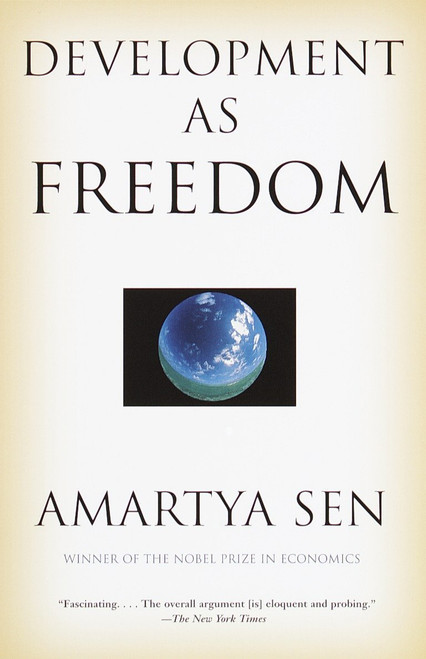Amartya Sen, who received the Nobel Prize in Economic Science in 1998, presents a landmark work that places individual freedom at the center of a comprehensive analysis of today's global economy. The role of different institutions--including the market, the state, the media, opposition groups, and non-government organizations--are seen within a broad, integrated framework. The focus of this work is on freedom both as the basic end and as the most effective means of sustaining economic life and countering poverty and insecurity in the contemporary world. This is a paradigm-altering foundation for understanding the demands of economic development--for both rich and poor--in the twenty-first century.
Editorial Reviews
"Fascinating....The overall argument [is] eloquent and probing." --The New York Times
"A new approach...refreshing, thoughtful, and human. Sen's optimism and no-nonsense proposals leave one feeling that perhaps there is a solution." --Business Week
"The...perspective that Mr. Sen describes and advocates has great attractions. Chief among them is that, by cutting through the sterile debate for or against the market, it makes it easier to ask sharper questions about public policy." --The Economist
"The world's poor and dispossessed could have no more articulate or insightful a champion among economists tan Amartya Sen. By showing that the quality of our lives should be measured not by our wealth, but by our freedom, his writings have revolutionized the theory and practice of development." --Kofi Annan, Secretary-General of the United Nations
About the Author
Amartya Sen is currently the Thomas W. Lamont University Professor and Professor of Economics and Philosophy at Harvard University. He is also a senior fellow at the Harvard Society of Fellows, a distinguished fellow of All Souls College, Oxford, an honorary fellow of Darwin College, Cambridge and a Fellow of Trinity College, Cambridge, where he previously served as Master. In 1988, he was awarded the Nobel Prize in Economic Science.







